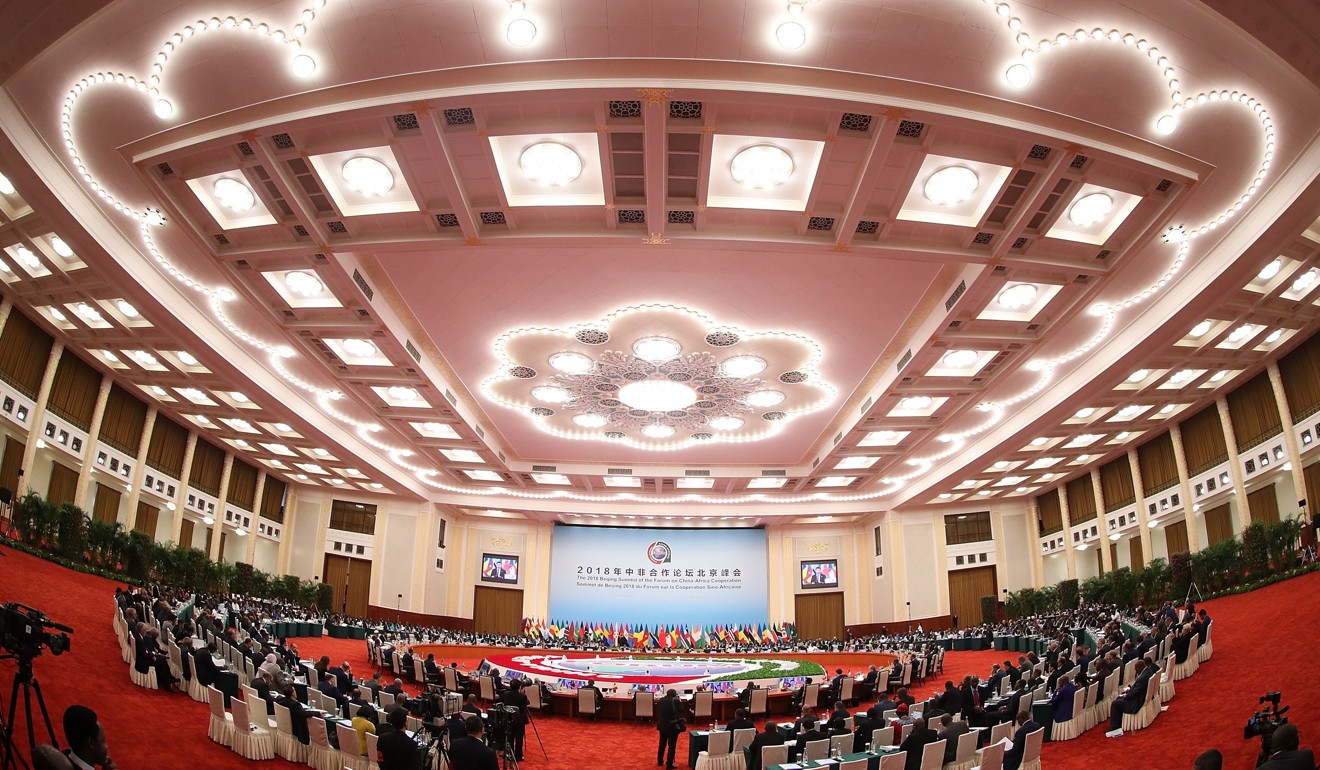
China defends extra US$60 billion pledge to Africa from critics at home
Internet censors shut down debate while state media talks up the tangible efforts of its economic commitment to African nations
China has defended its decision to pledge another US$60 billion in funding to African nations amid criticism that the money should be spent at home.
Quick-fingered internet censors suspended comments on news reports about the funding on Weibo, China’s Twitter equivalent, on Tuesday while state media outlets touted the tangible benefits of investing in Africa.
While Beijing fended off external accusations of neocolonialism, the enormous financing promise drew ire at home over China’s expanding foreign investments, in the midst of an economic slowdown and the spectre of further battering from the escalating US-China trade war.
Chinese President Xi Jinping made the funding pledge at the start of the three-yearly Forum on China-Africa Cooperation in Beijing on Monday.
The commitment included an exemption for some nations’ existing debts and added to US$60 billion in loans and grants already promised to Africa in 2015.
In separate microblogging posts, online commenters angrily compared Monday’s pledge with domestic spending on education and the disadvantaged.
“You should first raise your own children,” one commenter wrote. “My God, there have been so many natural and man-made casualties recently, can you please take a look at our low-income people?”
“US$60 billion is money that we earned!” another wrote. “Tell me who is causing the suffering of China’s everyday people?”
In one biting meme on social media, netizens set Chinese Foreign Minister Wang Yi’s comments that China would not waver in its economic commitment to Africa alongside Education Minister Chen Baosheng’s quotes that the country had limited funds and could not “exceed its own stage of development”.
In reference to Xi, another commenter wrote: “It is better to teach a person to fish than to fish for them. What Africa is lacking most is a wise leader. Maybe we can donate this one to Africa.”
‘No political strings attached’: China doubles financial pledges to Africa and vows to waive debt for poorest nations
In response to the criticism, state media outlets ran commentaries focusing on the win-win benefits of China’s cooperation with Africa, noting the continent’s large market potential and abundant natural resources, such as crude oil, manganese and copper.
China is Africa’s largest trading partner, with Beijing expanding its presence on the continent in recent years beyond trade and investment to include military and political interests.
“People often ask why China wants to partner with Africa,” a post from Xiakedao, a social media platform run by the Communist Party mouthpiece People’s Daily, said on Tuesday. “China and Africa have very strong complementarity, and Africa’s development potential will bring a large market.”

It added that China had imported more cotton and copper from Africa than it produced domestically, and that oilfield projects by Chinese enterprises in Africa “greatly helped” China’s energy security.
A People’s Daily article on Sunday said assistance to Africa “gave China concrete ‘rewards’, since even though China’s aid did not have any political preconditions, many African countries have consistently reciprocated by helping China”.
The article also referenced African aid during the devastating 2008 Wenchuan earthquake and rhetorical support to Beijing’s claims in the South China Sea, saying: “This brotherhood is not something that even money can buy.
“For China-Africa cooperation, one cannot just look at the financial accounts, but must look towards the future from a developmental perspective.”
But Hu Xingdou, a Beijing-based economics professor, said Beijing should at least consider the public outcry against the foreign financing, even if there were gains for China from energy cooperation and trade relations with Africa.
“Trade numbers and industrial revenues are going down, and most Chinese still cannot afford proper medical care or education,” he said.
“There are many critically ill Chinese who cannot do anything but wait for death, so the scepticism online is quite natural … Aid to Africa is necessary but needs to be done within China’s capabilities.”
Additional reporting by Jun Mai

